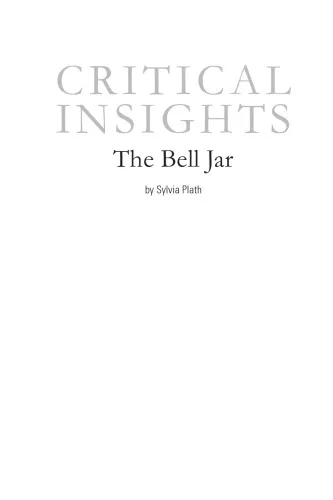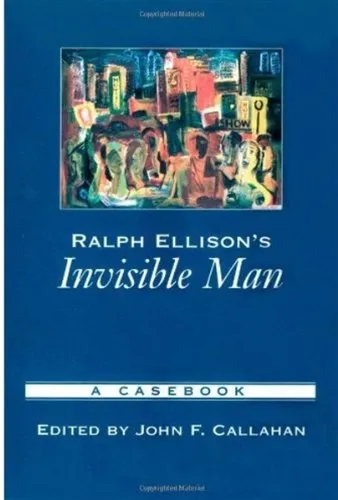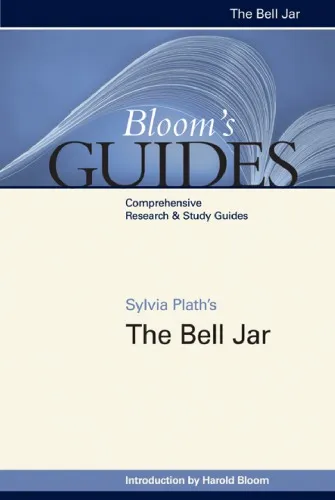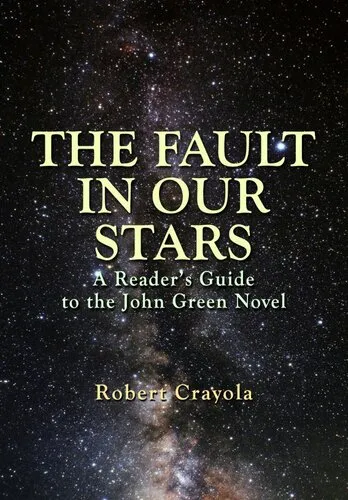The bell jar, by Sylvia Plath
4.0
بر اساس نظر کاربران

شما میتونید سوالاتتون در باره کتاب رو از هوش مصنوعیش بعد از ورود بپرسید
هر دانلود یا پرسش از هوش مصنوعی 2 امتیاز لازم دارد، برای بدست آوردن امتیاز رایگان، به صفحه ی راهنمای امتیازات سر بزنید و یک سری کار ارزشمند انجام بدینکتاب های مرتبط:
Persian Summary
معرفی کتاب «ناقوس شیشه» اثر سیلویا پلات
کتاب «ناقوس شیشه» اثر سیلویا پلات یکی از مهمترین و تاثیرگذارترین آثار در ادبیات معاصر جهان است. این رمان بیشتر به خاطر شیوه خاص نوشتار و موضوعاتی که در آن به تصویر کشیدهشده است، مورد تحسین قرار گرفته است.
خلاصهای از کتاب
«ناقوس شیشه» داستان استر گرینوود، یک زن جوان و با استعداد است که در دهه ۱۹۵۰ و در اوج زندگی ظاهری زیبا و موفق خود، در دوقطبی بحران و افسردگی فرو میرود. استر که به واسطهی رهایی کاذب از محیط محافظهکار جامعه و ورود به فضای رسانهای نیویورک، به دنبال کسب تجربههایی تازه است، با چالشهای درونی و کنارهگیری از اجتماع مواجه میشود. رمان به شیوهای بسیار واقعگرایانه به مبارزات روحی و روانی استر پرداخته و همچنین به نحوهی برخورد جامعه با بیماریهای روانی و نقایص عمیق در نظام درمانی آن زمان تمرکز دارد.
نکات کلیدی
«ناقوس شیشه» فراتر از یک بیوگرافی نیمهواقعی است. این کتاب نقدی قوی بر وضعیت اجتماعی و فرهنگی زن در دههی ۱۹۵۰ آمریکا و کشمکشهای درونی فرد به دلیل عدم تطابق با انتظارات جامعه است. همچنین، این رمان تصویری شفاف از سرکوب خواستهها و انتظارات درونی زنان جوان آن زمان ارائه میدهد. پلات موفق میشود با ترکیب زبان فلسفی و ادبی قوی خود، تجربیات شخصی و نگاهی اجتماعی را با هم تلفیق کند.
جملات معروف از کتاب
- "من فقط لبخندی کاملاً مصنوعی و دنداننمایانی داشتم که گویی همه چیزهای دنیا بهجز لبخندم را فروخوردهاند."
- "مثل همیشه، جایی در اعماق قلبم آرزو داشتم همه چیز به طرز فوقالعادهای ساده شود."
- "ما همیشه به آن چه نمیخواهیم بدل میشویم."
چرا این کتاب مهم است
اهمیت «ناقوس شیشه» نه تنها به خاطر نثر زیبا و قدرتمند آن است، بلکه به دلیل به چالش کشیدن تصورات غلط درباره بیماریهای روانی و ایجاد بستری برای بحثهای مهم اجتماعی و فرهنگی است. این کتاب بیش از یک هیجان ادبی است؛ «ناقوس شیشه» پل ارتباطی بین خواننده و تجربههایی است که شاید بسیاری از آنها را در موفقترین لایههای زندگی نیز درک نکرده باشیم. از این رو میتوان گفت که این اثر نه تنها یک روایت شخصی بلکه یک پرسش اجتماعی از دریچه هنر و ادبیات است.
The Bell Jar by Sylvia Plath: An Introduction
Sylvia Plath's "The Bell Jar" is an iconic novel that provides a profound and disturbing look at mental illness, identity, and societal expectations. First published in 1963 under the pseudonym "Victoria Lucas," this seminal piece of literature continues to resonate with readers due to its raw and honest exploration of a young woman's descent into mental illness. This introduction offers an overview of the novel's key elements, diving into a detailed summary, key takeaways, memorable quotes, and the significance of the book.
Detailed Summary of the Book
Set in the 1950s, "The Bell Jar" follows the life of Esther Greenwood, a bright young woman who has won a prestigious magazine internship in New York City. Despite the glamour and opportunity surrounding her, Esther feels increasingly disenchanted with the societal roles expected of women. Her journey captures the essence of a bright future darkened by personal turmoil and psychiatric challenges.
Esther struggles with her aspirations, perfectionism, and the pressure to conform. Away from home, in a city teeming with life, she experiences a growing sense of alienation and finds herself trapped in a "bell jar" of her own mind. Overwhelmed by anxiety and depression, she returns home to suburban Massachusetts, where her mental state deteriorates.
The novel explores Esther's experiences with the mental healthcare system of the time, including her interactions with various doctors and her time in psychiatric institutions. Her journey through breakdown and recovery highlights the inadequate and often damaging treatments available in the 1950s, as well as the stigma surrounding mental illness.
Key Takeaways
- Mental Health Awareness: "The Bell Jar" serves as a powerful narrative that sheds light on the importance of mental health awareness and the need for compassionate care.
- Social Expectations: The novel critiques the societal expectations imposed on women during the 1950s, such as the pressure to marry and conform to traditional roles, highlighting conflicts between personal ambition and societal norms.
- Identity and Self-discovery: Esther's journey is also one of self-discovery and coming to terms with her identity, ambitions, and mental health, which speaks to the struggles many face when transitioning into adulthood.
Famous Quotes from the Book
"I felt very still and very empty, the way the eye of a tornado must feel, moving dully along in the middle of the surrounding hullabaloo."
"The silence depressed me. It wasn't the silence of silence. It was my own silence."
"To the person in the bell jar, blank and stopped as a dead baby, the world itself is a bad dream."
Why This Book Matters
"The Bell Jar" remains a poignant and timeless exploration of mental health and the societal pressures faced by women. Sylvia Plath's honest and compelling narrative provides insights into the complexities of human emotions and the world of psychiatric care in the mid-twentieth century. As a semi-autobiographical novel, it also offers glimpses into Plath's own life, struggles, and tragic end—making it a crucial part of literary and cultural studies.
Its rich narrative, combined with Plath's lyrical and evocative prose, has helped "The Bell Jar" endure as a classic. It challenges readers to contemplate the often invisible struggles of mental illness and the importance of empathy and understanding. For anyone grappling with similar issues or wishing to gain insight into the human condition, "The Bell Jar" is a compelling and necessary read.
دانلود رایگان مستقیم
شما میتونید سوالاتتون در باره کتاب رو از هوش مصنوعیش بعد از ورود بپرسید
دسترسی به کتابها از طریق پلتفرمهای قانونی و کتابخانههای عمومی نه تنها از حقوق نویسندگان و ناشران حمایت میکند، بلکه به پایداری فرهنگ کتابخوانی نیز کمک میرساند. پیش از دانلود، لحظهای به بررسی این گزینهها فکر کنید.
این کتاب رو در پلتفرم های دیگه ببینید
WorldCat به شما کمک میکنه تا کتاب ها رو در کتابخانه های سراسر دنیا پیدا کنید
امتیازها، نظرات تخصصی و صحبت ها درباره کتاب را در Goodreads ببینید
کتابهای کمیاب یا دست دوم را در AbeBooks پیدا کنید و بخرید
1814
بازدید4.0
امتیاز0
نظر98%
رضایتنظرات:
4.0
بر اساس 0 نظر کاربران
Questions & Answers
Ask questions about this book or help others by answering
No questions yet. Be the first to ask!

















